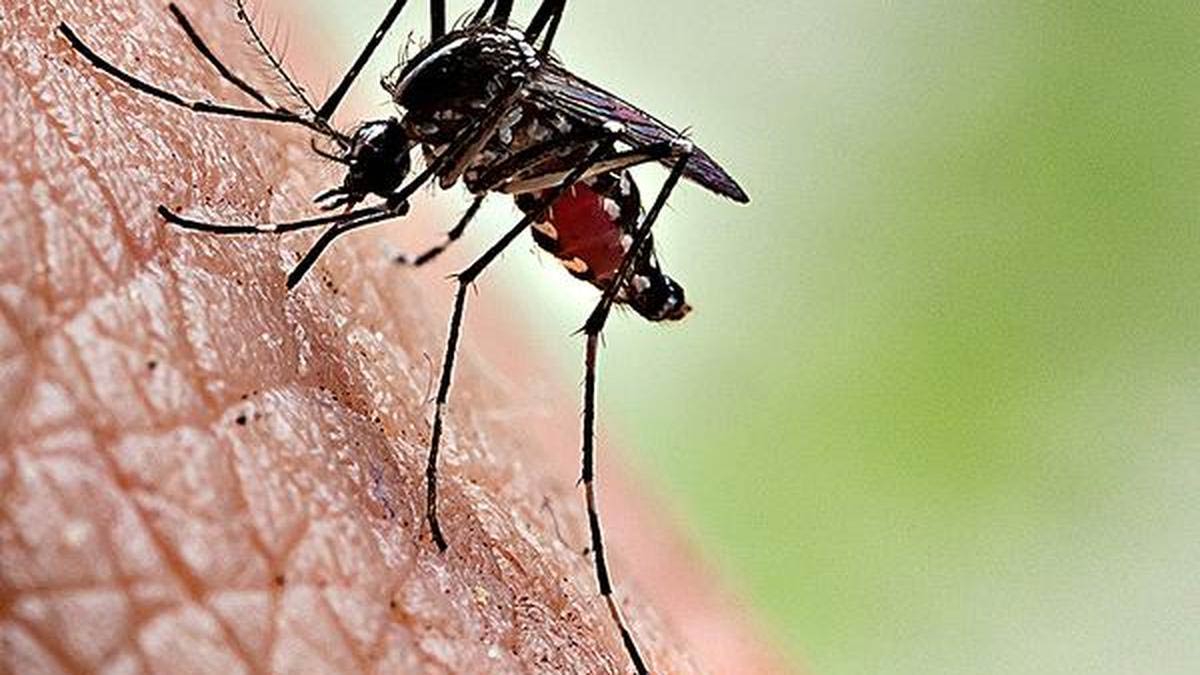
Telangana is currently grappling with a resurgence of dengue, with Hyderabad emerging as the district hardest hit by the outbreak. Since January 2024, the state has reported 9,254 cases of dengue, of which 2,731 have been recorded in Hyderabad alone, reflecting the severity of the situation. This spike in cases, significantly surpassing last year's tally of 8,016, underscores the urgent need for effective preventive and containment strategies. Besides dengue, the state is also witnessing cases of other vector-borne diseases, such as chikungunya and malaria, particularly in the Bhadradri-Kothagudem district.
Table of Content:-
Factors Contributing to the Dengue Outbreak
Doctors and health experts point to several environmental factors fueling the spread of dengue and other mosquito-borne illnesses. Recent heavy rains across Telangana, followed by waterlogging and rising temperatures, have created the perfect conditions for mosquito breeding. Stagnant water from rainfall acts as a breeding ground for mosquitoes, while the rise in temperature accelerates mosquito reproduction, leading to a spike in infections.
Mosquitoes, particularly the Aedes species responsible for transmitting dengue, thrive in warm, humid conditions and multiply rapidly in areas where stagnant water is present. These conditions have become more prevalent following the monsoon season, explaining the sharp rise in dengue cases in Hyderabad and other regions.

Comparative Outlook: Dengue Trends in 2023 and 2024
The scale of the dengue outbreak this year is concerning, especially when compared to the previous year's numbers. By early October 2024, the number of dengue cases had already surpassed those recorded in all of 2023. The increasing numbers reveal the scale of the public health crisis that Telangana is facing, particularly as the state is dealing with multiple vector-borne diseases simultaneously.
However, there is some positive news as health officials note a slight decline in the number of dengue cases in Hyderabad by October 2024. While the city registered 554 dengue cases in September 2023, this year's September figure stood at 398, indicating a modest reduction. Despite this decrease, the overall surge in cases earlier in the year still poses a significant challenge for public health authorities.
Also Read: Three New Zika Virus Cases Reported In Pune, Sparking Health Concerns
Government and Health Authorities' Response
In response to the ongoing dengue outbreak, Telangana’s health minister Damodara Rajanarsimha has urged local authorities to take immediate action to curb the spread of the disease. He has emphasised the need for community involvement, encouraging residents to eliminate stagnant water sources and maintain good hygiene practices to reduce mosquito breeding opportunities. Public health officials have been tasked with launching awareness campaigns aimed at educating the population on preventive measures to avoid infection.
Furthermore, hospitals across Hyderabad and other affected regions have ramped up their capacity to handle the influx of patients. Osmania General Hospital (OGH), one of the key healthcare centres in Hyderabad, has been at the forefront of treating dengue and other seasonal diseases. According to hospital officials, they are seeing a variety of viral fevers, including dengue, but there has been a notable decline in the severity of cases. Most dengue patients recover without the need for hospitalization, although those with complications like low platelet counts require emergency admission.
OGH’s outpatient department handles roughly 500 patients per day, with around 80-90 presenting with fever-related symptoms. Of these, only a small fraction—about 5-10 individuals—require admission due to severe cases of dengue or other vector-borne illnesses. The hospital continues to monitor the situation closely, ensuring that resources are available for those in critical condition.
The Way Forward: Vigilance and Preventive Measures
As Telangana battles this ongoing dengue outbreak, it is imperative for both authorities and the general public to remain vigilant. The government's efforts to raise awareness about preventive measures are crucial in containing the spread of the disease. Eliminating breeding sites, such as areas with stagnant water, using mosquito repellents, and wearing protective clothing are some of the key recommendations for reducing mosquito bites.
Also Read: Dengue Crisis In Rajasthan: Second Death Confirmed As Cases Surge Past 1,100
Given that the rainy season creates favourable conditions for mosquito breeding, public health officials are also focusing on regular fogging and spraying of insecticides in areas with high mosquito populations. Moreover, healthcare facilities are being strengthened to manage the high volume of fever cases seen during this season.
Bottomline: A Continued Health Challenge
The resurgence of dengue in Hyderabad and across Telangana presents a significant public health challenge that requires concerted action from both the government and the community. While the number of severe cases may have decreased, the rise in overall infections highlights the importance of sustained preventive efforts. As the state grapples with multiple mosquito-borne diseases, public awareness and government intervention will be crucial in mitigating the impact of these outbreaks and protecting the health of its citizens.
Also watch this video
How we keep this article up to date:
We work with experts and keep a close eye on the latest in health and wellness. Whenever there is a new research or helpful information, we update our articles with accurate and useful advice.
Current Version